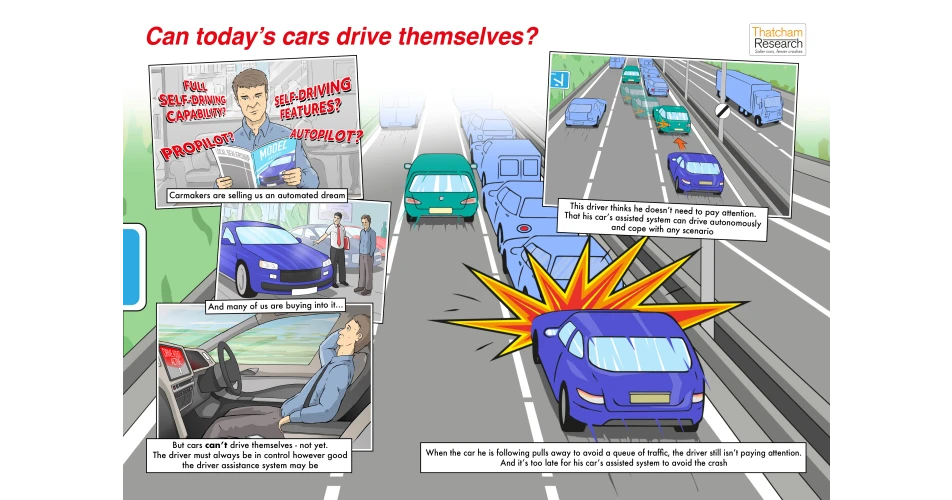Thatcham Research and the Association of British Insurers have called on car makers to provide greater clarity around the capability of vehicles sold with technology that is sometimes described as autonomous. It comes after a growing number of incidents where drivers have crashed because of over reliance on driver assistance systems.
The risks to drivers have been outlined in the new ‘Assisted and Automated Driving Definition and Assessment’ paper, which has identified dangerous grey areas associated with some driver assistance systems, some of which have misleading names such as Autopilot and ProPilot with an implication that they can do much more than they are actually designed to do.
Matthew Avery, Head of Research at Thatcham Research said, “We are starting to see real-life examples of the hazardous situations that occur when motorists expect the car to drive and function on its own. Specifically, where the technology is taking ownership of more and more of the driving tasks, but the motorist may not be sufficiently aware that they are still required to take back control in problematic circumstances. Fully Automated vehicles that can own the driving task from A to B, with no need for driver involvement whatsoever, won’t be available for many years to come. Until then, drivers remain criminally liable for the safe use of their cars and as such, the capability of current road vehicle technologies must not be oversold.”
Thatcham Research has also said it is to begin testing vehicles with driver assistance systems against its own 10 point criteria for safe operation.
This will include:
- Studying the manufacturers’ promotional literature and driving manuals to find out how clearly the systems’ capabilities and drivers’ responsibilities are explained.
- How drivers cope with enabling, activating, operating and deactivating the systems.
- Assessment of what happens when the driver is required to take back control, whether routinely or in an emergency.
- Will the Assisted technology always comply with the law, for example adjusting to local speed limits?
